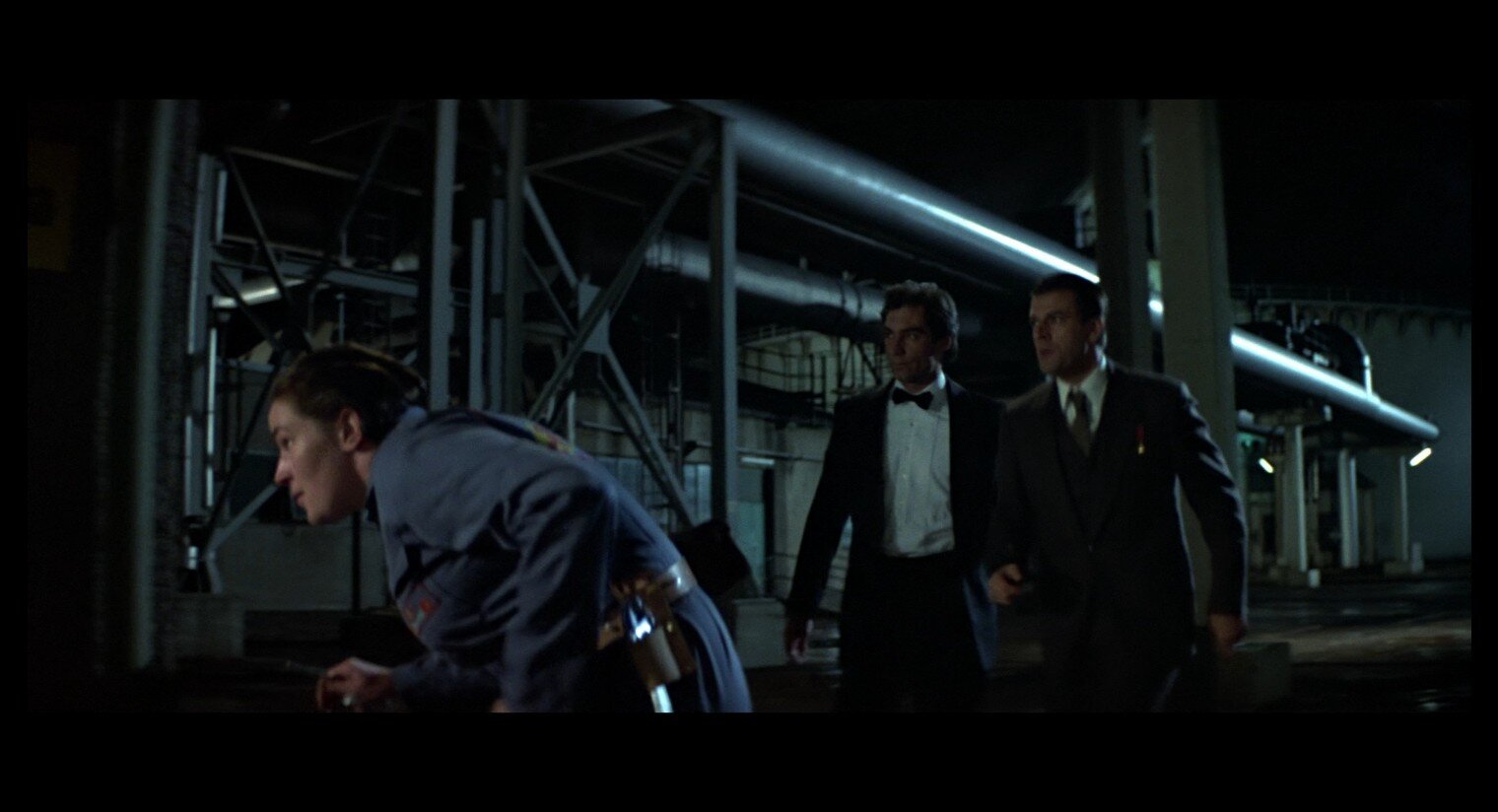“What kind of girl do you think I am!”
Appearing in only one scene, The Living Daylights’ Rosika Miklos is nevertheless one of the most memorable characters in any Bond film. So I was overjoyed when the actress who brought her indelibly to life, Julie T. Wallace, shared with me her thoughts on Rosika and the nature of her previous “work” with 007.
Unlike most Bond girls with limited screen time, Rosika doesn’t end up dead. That in itself makes her stand out from the crowd.
You could argue that Moneypenny also fits that bill. But Until Skyfall at least, Bond and Moneypenny’s relationship had remained strictly professional.
I’m not sure sure Rosika and Bond’s relationship stayed in the Moneypenny/Bond ‘friend zone’ however.
She appears on screen announcing that she has ‘worked with’ Bond before and is happy to see him. For his part, he’s happy to see her too. Sexual tension?
All we know for certain is she knows a lot about borscht and how to handle a big spanner. As for the borscht, I misheard this when I saw this film for the first time as a child. I thought she was warning Bond about the danger of Koskov being ‘boshed’ rather than ‘borscht’, which sounds a lot kinkier than turning him into beetroot soup.
And as for the spanner? Well, it’s quite a relief to find out that ‘taking care’ of her supervisor does not involve this heavy tool but does involve her taking off her boiler suit and giving him a late shift to remember.
To paraphrase Rosika’s own question then (a brilliant, subtitled punchline for the character and sequence as a whole), what kind of a girl do we think she is?
Rosika is pretty unique actually. When any woman appears on screen in Bond wearing unfeminine clothing, my queer coding sensor lights up like a Christmas tree. But I get nothing of that here.
Why have I, a gay man, always been so drawn to this character, right from my first viewing of The Living Daylights? Is it because, although apparently heterosexual, she subverts heteronormativity by upsetting the power dynamic? Heteronormative society is, after all, inherently patriarchal. Is heterosexual desire - in particular the ease with which heterosexual men can be manipulated - being played for laughs? Is it because Rosie is played by the absolutely hilarious Julie T. Wallace?
I was delighted when Julie herself shared with me her approach to the character:
“She is a gal that would do anything for love. My own idea was that she had had a one night stand with Bond. It was a good night. That she allowed herself to fall in love. She would go on to do anything for that man. Even risk her own life! Love and sex? What it lets/makes us do!”
That probably explains why I relate to Rosika so much and why she is a favourite character of many other fans. Her love for Bond leads her into a life of danger.
And unlike many of the girls over the years, I suspect Bond might be willing to put his life on the line for her as well.
This article is an expanded version of the analysis of Rosika from my queer re-review of The Living Daylights, available here.





